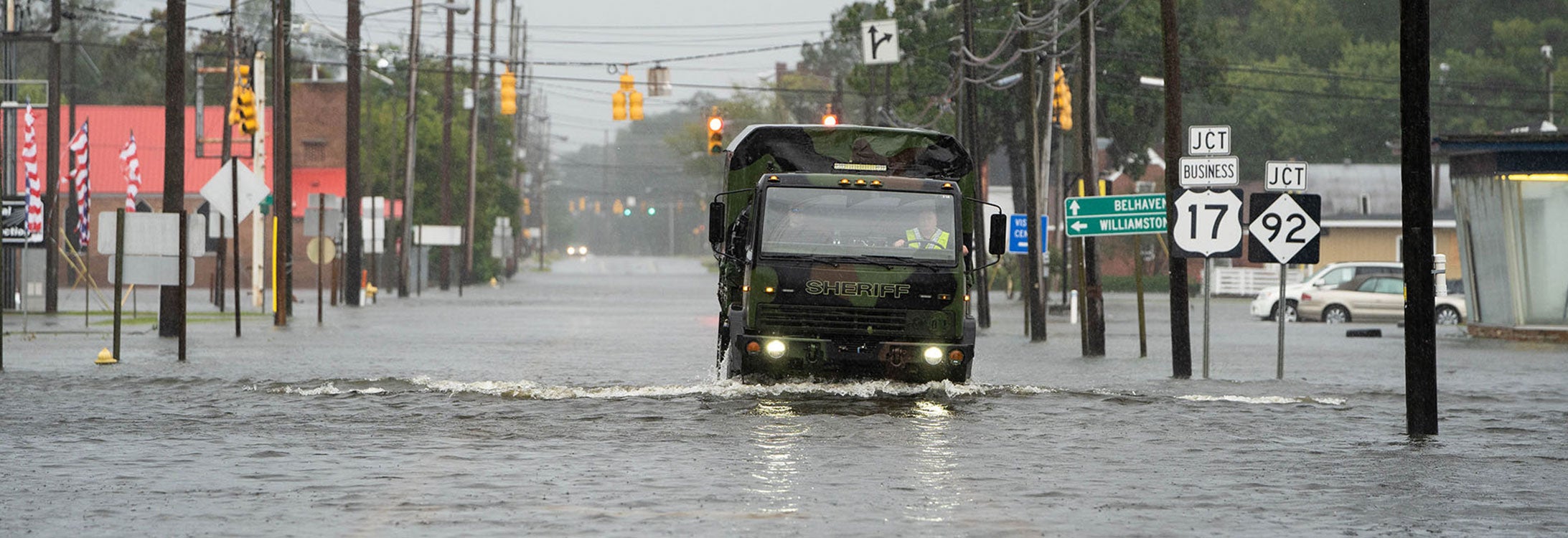ECU receives $5 million to strengthen coastal communities
A $5 million federal grant will support ECU researchers and students as they work to strengthen resilience in communities along the Albemarle-Pamlico estuary system of coastal North Carolina.
ECU will serve as the central coordinating hub for more than 20 faculty members from seven universities who will work to create connections within the community, coordinate service opportunities and communicate with stakeholders. Partner institutions are the University of North Carolina at Greensboro, North Carolina Central University, Clemson University, the University of Virginia, Manhattan College and the Virginia Institute of Marine Science.
“Our communities in eastern North Carolina face major challenges from water-related issues,” said Stephen Moysey, professor of geological sciences, director of the Water Resources Center at ECU and principal investigator on the study. “These problems are a shared responsibility and burden that impact both coastal and inland communities. The project will support those communities as they assess the sources of these hazards, their vulnerability to risk and approaches to collaborative decision-making to adapt to a changing coastal environment.”
ECU geoscientists, social scientists, biologists, engineers and others will work together on these complex problems. Co-principal investigators at ECU are Michael O’Driscoll, associate professor of coastal studies; Natasha Bell, assistant professor of engineering; and Jacob Petersen-Perlman, assistant professor of geography, planning and environment. Poonam Arora, chair of management and marketing at Manhattan College in New York, also serves as a co-principal investigator. Coastlines are vital to the U.S. economy, security and well-being, according to the National Science Foundation. Nearly 40% of the country’s population lives near a coast. Every year, that number increases.
“We are particularly focused on working with communities facing challenges associated with environmental justice problems caused by social, environmental and economic inequities,” Moysey said. “In addition, the project will partner with a variety of external partners to undertake an unprecedented effort to monitor water quality and flows in the Tar-Pamlico watershed.”
Those community leaders include representatives from the state, numerous eastern North Carolina cities and towns, as well as the Myrtle Beach area of South Carolina. Other partners include non-governmental organizations such as Sound Rivers and the N.C. Conservation Network.
“Coastal systems are changing across the globe, and North Carolina is no different,” said Reide Corbett, dean of Integrated Coastal Programs at ECU. “It is critical that we work directly with those communities being impacted and continue to develop a better understanding of the drivers and the socioeconomic implications of these changes.”
